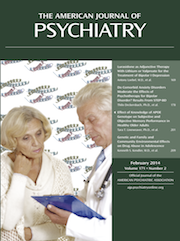Effect of Knowledge of APOE Genotype on Subjective and Objective Memory Performance in Healthy Older Adults
Abstract
Objective
The knowledge that one carries the apolipoprotein E (APOE) ε4 allele risk factor for Alzheimer’s disease was recently found to have little short-term psychological risk. The authors investigated the impact of knowledge of carrying the risk allele on subjective ratings of memory and objective memory test performance of older adults.
Method
Using a nested case-control design, the authors administered objective verbal and visual memory tests and self-rating scales of memory function to 144 cognitively normal older adults (ages 52–89) with known APOE genotype who knew (ε4+, N=25; ε4−, N=49) or did not know (ε4+, N=25; ε4−, N=45) their genotype and genetic risk for Alzheimer’s disease prior to neuropsychological evaluation.
Results
Significant genotype-by-disclosure interaction effects were observed on several memory rating scales and tests of immediate and delayed verbal recall. Older adults who knew their ε4+ genotype judged their memory more harshly and performed worse on an objective verbal memory test than did ε4+ adults who did not know. In contrast, older adults who knew their ε4− genotype judged their memory more positively than did ε4− adults who did not know, but these groups did not differ in objective memory test performance.
Conclusions
Informing older adults that they have an APOE genotype associated with an increased risk of Alzheimer’s disease can have adverse consequences on their perception of their memory abilities and their performance on objective memory tests. The patient’s knowledge of his or her genotype and risk of Alzheimer’s disease should be considered when evaluating cognition in the elderly.



